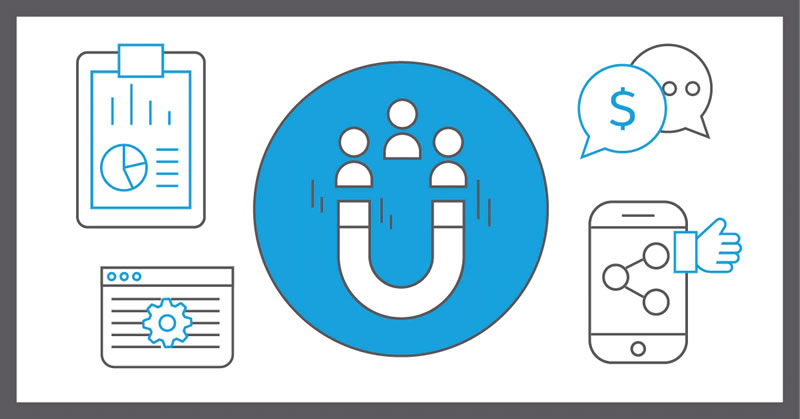You have a million-dollar idea. What’s the only problem? You don’t yet have a million bucks (fingers crossed!) It takes passion, bravery, and capital to launch a new company. Few people have a stash of money for a startup. This can prevent your million-dollar business idea from becoming a reality.
You have several options for funding and capital. You don’t need to be an expert in finance to benefit from them. Here are some common ways that entrepreneurs can turn their big ideas into small businesses.

1. Loan application
For new entrepreneurs in need of working capital, applying for a loan is a popular choice. Small business loans are available to new entrepreneurs, including Small Business Administration loans (SBA), traditional loans, lines of credit and specialty loans. There are many different types of small business loans, each with its own qualifications, rates and terms. Review them carefully to find the best loan for your company.
-
- SBA loans have low interest rates because they are backed up by the U.S. Government. SBA Loans can be limited because they are so popular.
- Banks and other financial institutions offer traditional loans. These loans are flexible and tailored to your needs. If you do not have a good credit rating or a strong business history, it may be difficult to get approved.
- You can withdraw cash when you want it, and only pay interest for the money you withdraw. You may be restricted from getting other financing or loans in the future if you use a business credit line.
- Specialty loan options are available for business owners who belong to specific groups, such as women, people of colour, immigrants or rural business owners. You’ll have less competition if you qualify for a speciality loan. A specialty loan can dictate how you spend your funds.
You will need to provide your business history, credit history, collateral, and business plan regardless of the type of loan that you apply for. Pay your bills on-time, pay off your old debts and increase your credit limit to increase your chances of being approved for a business loan. Focus on creating a solid business plan, and financial forecasts if you are a new business without a business history.
2. Grants for small businesses: Apply
Small Business Grants can help you finance your business without having to take out a loan. Grants are not like small business loans. You don’t have to pay them back.
It’s not free money. Small business grants are targeted at specific groups such as women, minorities, veterans and veterans or initiatives like scientific research. Small business owners can apply for a variety of grants. These range from federal grants to grants offered by state and local governments to private grants. You’re likely to find a grant for your business, but it will take some work. The application process for most grant programs is rigorous, and the money that you receive could be restricted.
It takes time and research to find the best grant programs for your business, but even a small amount of money can help. You can find grants for your business idea or new venture by contacting the Small Business Development Center in your area. As always, a solid business plan and Value Proposition will increase your chances to be considered for a grant.
3. Crowdfunding
Entrepreneurs can now ask for money via crowdfunding. Crowdfunding allows users to request small donations or “backers” from a large number of people.
Your request must be persuasive. Your backers will want to know how their money is going to be spent before they donate. This is where your value proposition and business plan come into play. Successful crowdfunding campaigns are those that appeal to the human emotions, and tell a compelling story. You can tell the difference between “I want to start an art business”, and “I’d like to rent space and purchase art supplies to open my art studio, where I will offer art classes to youth at risk.”
Crowdfunding Platforms such as Kickstarter, GoFundMe and Patreon allow you to easily launch your campaign and spread your story. Some platforms are based on a donation-based model. You simply ask your backers for money without giving anything in return. Some platforms offer rewards or equity depending on the amount invested.
Crowdfunding can be a great tool to raise money while building a loyal group of supporters. Future customers). Don’t think that it is a fast and easy way to make money. Kickstarter data shows that more than 10% of campaigns end without any pledges. It will take a lot of work to get people to back your campaign. Consider it a crash-course in marketing for your new business.

4. Find angel investors
Brand new businesses may find financial salvation through angel investors–high-net-worth individuals willing to take a chance on your million-dollar idea. Angel investors will invest in an idea for a business even if it is just that – an idea. They are aware that there is no guarantee their idea will succeed (but they do hope it does).
You can still find angel investors if you don’t have any close friends who are millionaires. Use online platforms to connect you with accredited investors or improve your networking skills. Finding investors is just half the battle. If you want an investor to invest in your business, you need to impress them with your pitch.
5. Reduce startup costs
There are no two identical businesses. Starting a business can be expensive. It could cost you anywhere between $500 and $50,000. Your start-up costs will vary depending on your business, the products and services you plan to sell.
Some costs like payroll, office supplies, and rent can be avoided, for example, if you do not plan to open an actual location or hire employees immediately. Some startup costs like taxes, insurance or payment for permits and licenses cannot be avoided.
By using one of the many marketplaces for service providers or sharing economies, you may be able minimize your startup costs. Etsy and Amazon make it simple to sell online. Selling services is easy on sites like TaskRabbit and Thumbtack. These platforms can help you build your brand, your business and business history while building credit. This will open up more funding opportunities for the future.
No money, no problem
Do not let the lack of startup funds stop you from implementing your million-dollar business idea. New business owners have many options to access funding without accumulating a mountainous debt. It doesn’t matter what path you take, it is important to have a solid business plan, including financial projections, value proposition and elevator pitch. This is a lot of work, but it will help you to see your business idea clearly. Your time investment should pay off with cash.











Leave a Reply